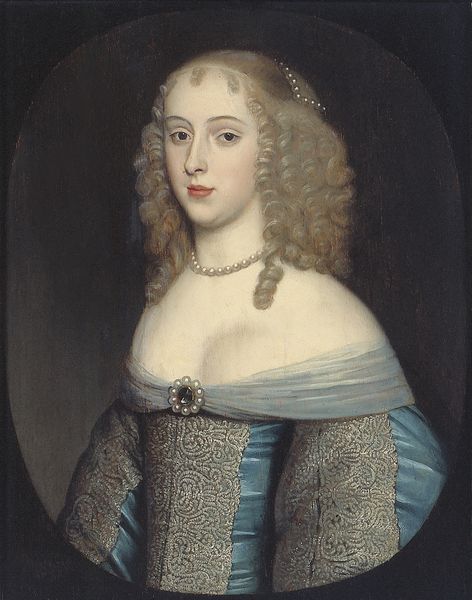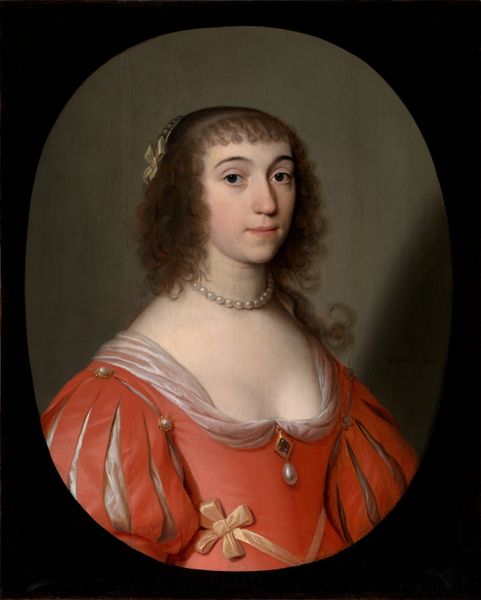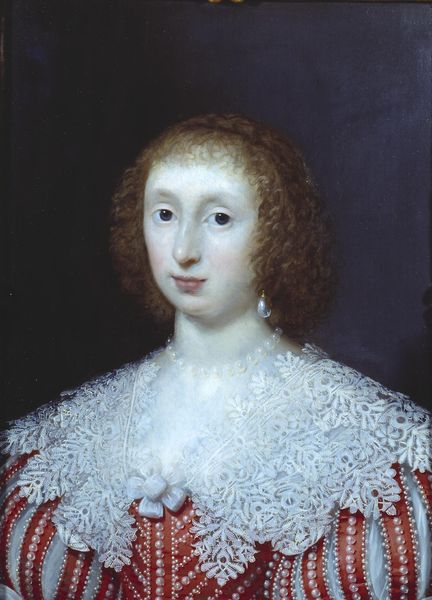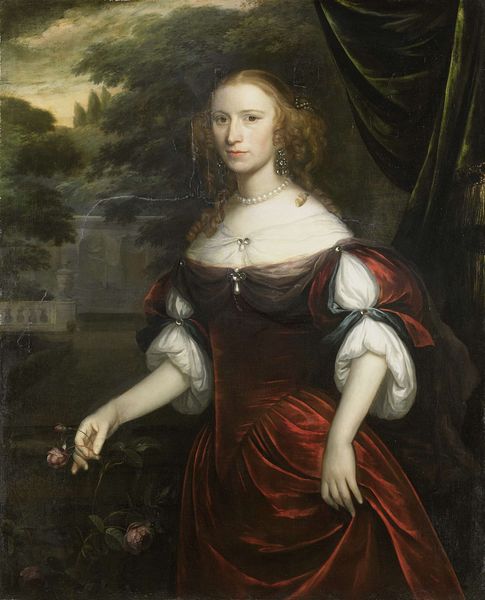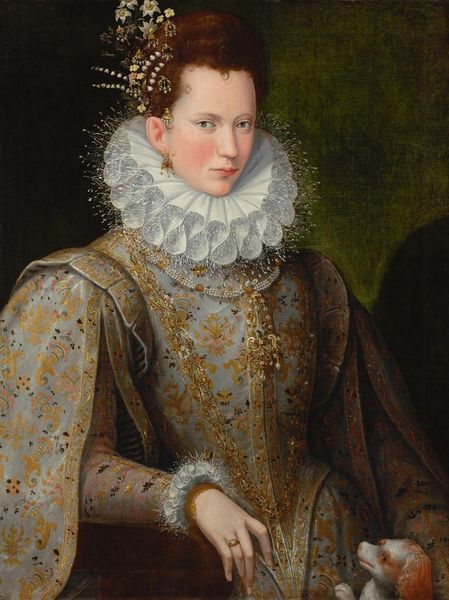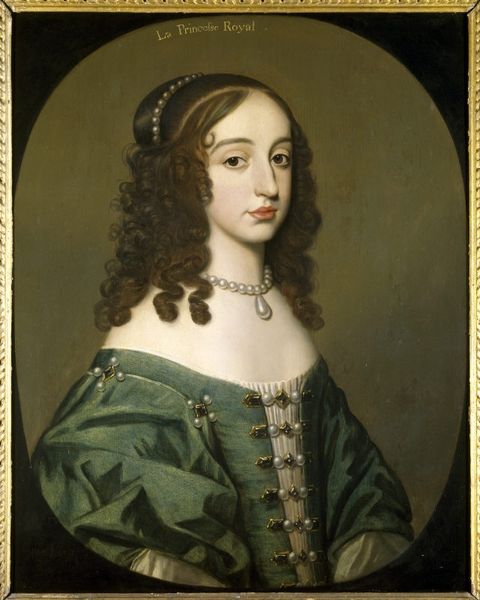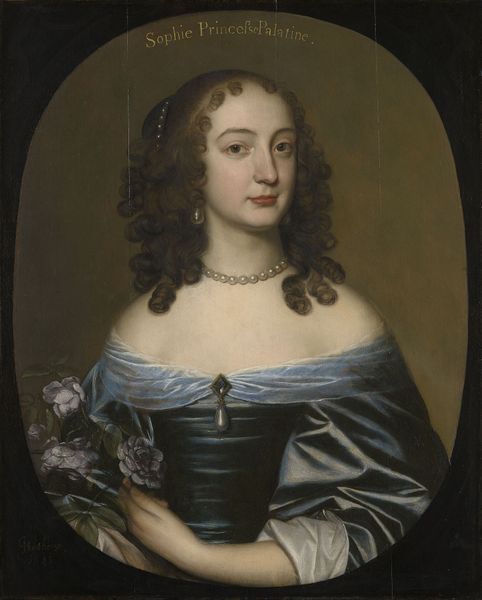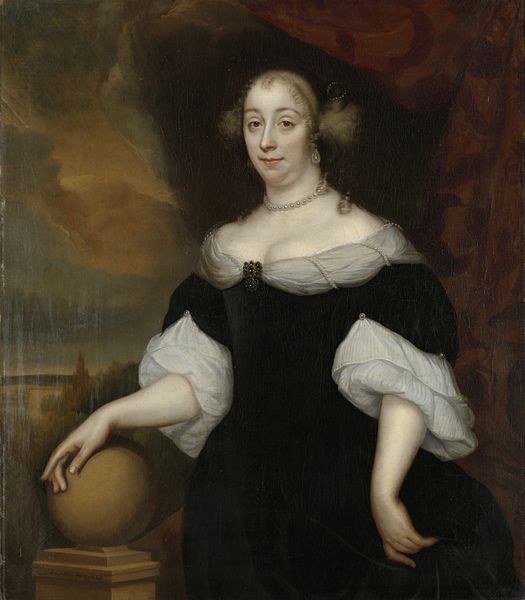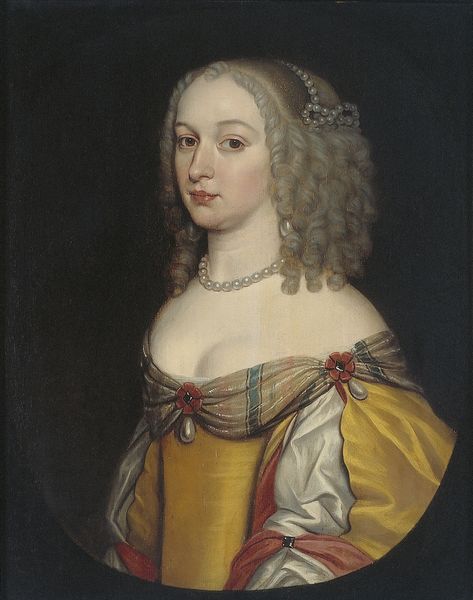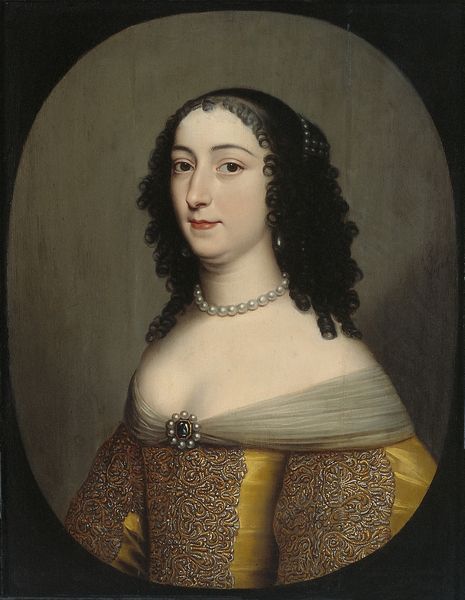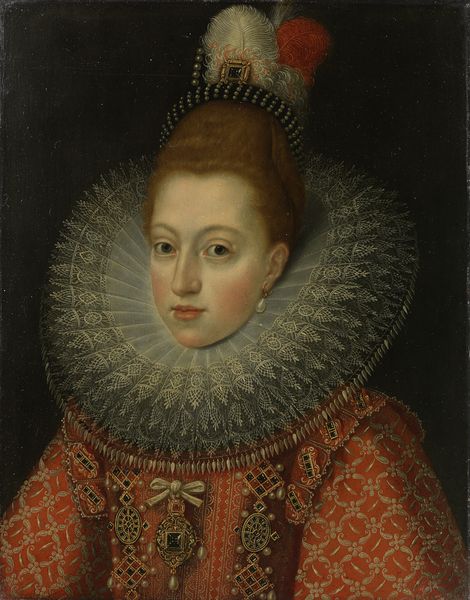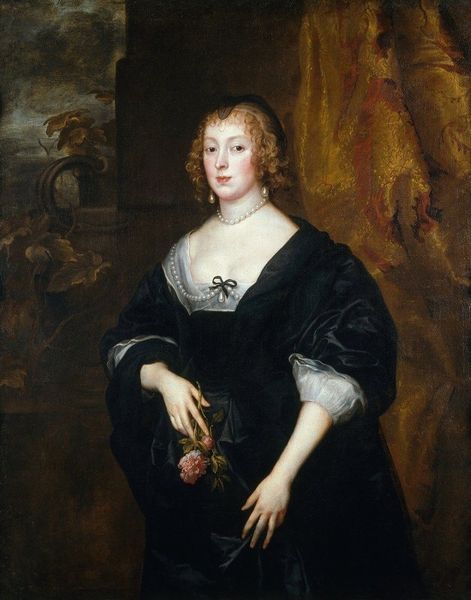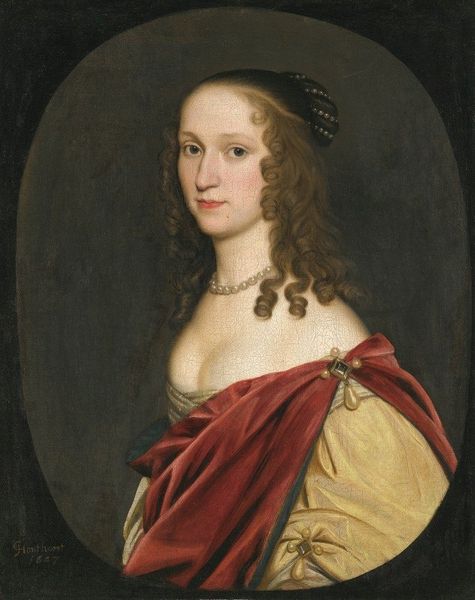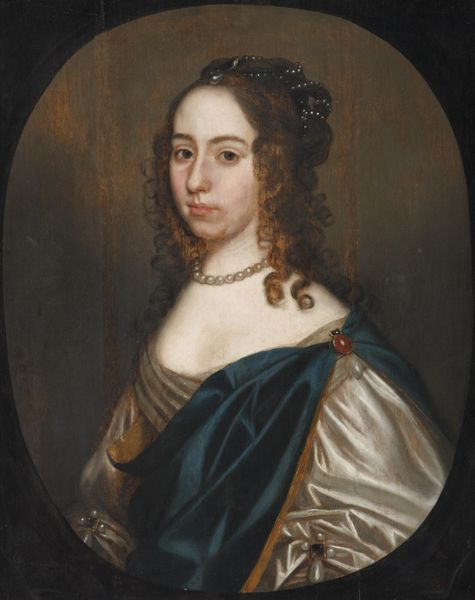
Dimensions: support: 571 x 445 mm
Copyright: CC-BY-NC-ND 4.0 DEED, Photo: Tate
Curator: Looking at Robert Peake's "Lady Anne Pope," held here at the Tate, I’m struck by the sheer opulence of the materials. The embroidery on her dress, the pearls, even the pigment used for the skin—all speak to wealth. Editor: She seems so fragile, doesn’t she? Almost ethereally pale against the dark background, like a delicate bloom. Curator: Indeed, the pale skin was highly prized, achieved through careful cosmetics and avoidance of sun exposure. It was as much a social statement as the costly garments. I wonder about the workshops involved in creating the lace ruff. Editor: That’s fascinating. And the cherry tree motif surrounding her head. Was this perhaps commissioned to commemorate a wedding, or to communicate something specific about her family’s status? Curator: The cherries could symbolize fertility, or something about the sitter's virtue, perhaps. Early portraits were often strategic objects within family and political alliances. Editor: It’s incredible how an image, meticulously crafted with specific materials and techniques, could carry such weight in society! Curator: Exactly, thinking about the work that goes into this kind of piece really shifts how you see it. Editor: Absolutely, now when I look at her, I see both the individual and the social forces at play.
Comments
Join the conversation
Join millions of artists and users on Artera today and experience the ultimate creative platform.
tate 10 months ago
⋮
This portrait of Lady Anne Pope (c.1599–1629) is rich in symbolic elements. Her ornate dress is embroidered with carnations, roses and strawberries, symbols of love and health, while her pearls represent wealth and purity. Her loose hair indicates her maiden status, for Lady Anne never married. The cherries shown on the tree were thought of as the ‘Fruit of Paradise’, and were given as a reward for virtue. The portrait, set in a painted oval, shares the poetic and private qualities found in the miniature paintings that were so popular during this period. Gallery label, February 2016
